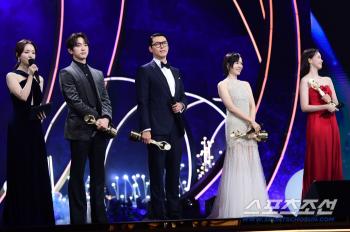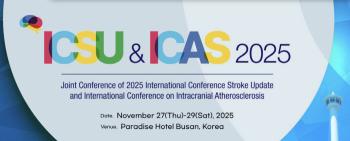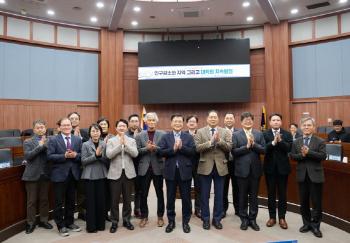Artificial Wow Transplants Lower Risk of Dementia...It's more than three times late when the outbreak started
Nov 20, 2025
A study found that implanting an artificial woo (a hearing aid transplant) into patients with severe hearing loss significantly reduces the risk of developing dementia.
A research team led by Jang Young-soo, an otolaryngologist at Inje University's Sanggye Paik Hospital, confirmed that Cochlear Implant transplants have a positive effect on not only hearing recovery but also cognitive function maintenance through big data analysis using data from the National Health Insurance Corporation and the Seoul St. Mary's Hospital at Catholic University (Professor Park Kyung-ho).
This study is the first in Korea to prove that artificial wow can actually help prevent dementia in old age beyond simple hearing rehabilitation.
The research team analyzed 391,195 patients diagnosed with moderate or higher hearing loss that met the disability registration criteria from 2010 to 2020 using data from the National Health Insurance Service and the domestic disability registration system. All study subjects had no history of being diagnosed with dementia at the time of initial diagnosis of hearing loss.
As a result of the analysis, the diagnosis rate of dementia during the follow-up period was 4.9% among 5,814 artificial wow transplant patients, and 16.1% of patients who did not undergo artificial wow (385,381) during the follow-up period. The diagnosis rate of dementia in transplant patients was about one-third lower than in non-transplant patients.
The diagnosis rate of dementia in the artificial woo transplant group (356,850) was 11.2% and the non-transplant group 17.5%, respectively, and a similar trend was confirmed in the elderly with 18.4% and 21.8% in the elderly over 70 years of age.
In particular, the average duration of dementia after diagnosis of hearing loss was 1886.9 days (about 5.2 years) for artificial woo transplant patients and 587.7 days (about 1.6 years) for non-transplant patients, indicating that the onset of dementia in the artificial woo transplant group was more than three times late.
The research team explained that the reason why artificial wow transplants lower the risk of dementia is that auditory rehabilitation reduces the 'cognitive load' caused by hearing loss. The more hearing loss is, the more energy the brain uses to distinguish and understand sounds, which reduces the capacity to use for other cognitive functions such as memory and judgment. Artificial wow helps to efficiently redistribute cognitive resources by relieving such brain overload.
Professor Jang Young-soo said, "Deafness not only accounts for the highest proportion of dementia risk factors that can be modified, but it is also an area that can be actively improved through treatment." The study confirmed that artificial woo transplantation, one of the treatment methods for hearing loss, is not just a device that makes sounds, but an important treatment tool for protecting the cognitive function of the brain." Since the effect has been confirmed even for people over 70 years of age, hearing treatment can be a new approach to preventing dementia beyond hearing recovery even in elderly patients with hearing loss," he added.
The research team plans to reveal the specific physiological principles of auditory rehabilitation on cognitive function maintenance through a randomized controlled trial in the future.
The study was published in the recent issue of the international journal Otology & Neurology.
A research team led by Jang Young-soo, an otolaryngologist at Inje University's Sanggye Paik Hospital, confirmed that Cochlear Implant transplants have a positive effect on not only hearing recovery but also cognitive function maintenance through big data analysis using data from the National Health Insurance Corporation and the Seoul St. Mary's Hospital at Catholic University (Professor Park Kyung-ho).
This study is the first in Korea to prove that artificial wow can actually help prevent dementia in old age beyond simple hearing rehabilitation.
The research team analyzed 391,195 patients diagnosed with moderate or higher hearing loss that met the disability registration criteria from 2010 to 2020 using data from the National Health Insurance Service and the domestic disability registration system. All study subjects had no history of being diagnosed with dementia at the time of initial diagnosis of hearing loss.
As a result of the analysis, the diagnosis rate of dementia during the follow-up period was 4.9% among 5,814 artificial wow transplant patients, and 16.1% of patients who did not undergo artificial wow (385,381) during the follow-up period. The diagnosis rate of dementia in transplant patients was about one-third lower than in non-transplant patients.
The diagnosis rate of dementia in the artificial woo transplant group (356,850) was 11.2% and the non-transplant group 17.5%, respectively, and a similar trend was confirmed in the elderly with 18.4% and 21.8% in the elderly over 70 years of age.
In particular, the average duration of dementia after diagnosis of hearing loss was 1886.9 days (about 5.2 years) for artificial woo transplant patients and 587.7 days (about 1.6 years) for non-transplant patients, indicating that the onset of dementia in the artificial woo transplant group was more than three times late.
The research team explained that the reason why artificial wow transplants lower the risk of dementia is that auditory rehabilitation reduces the 'cognitive load' caused by hearing loss. The more hearing loss is, the more energy the brain uses to distinguish and understand sounds, which reduces the capacity to use for other cognitive functions such as memory and judgment. Artificial wow helps to efficiently redistribute cognitive resources by relieving such brain overload.
Professor Jang Young-soo said, "Deafness not only accounts for the highest proportion of dementia risk factors that can be modified, but it is also an area that can be actively improved through treatment." The study confirmed that artificial woo transplantation, one of the treatment methods for hearing loss, is not just a device that makes sounds, but an important treatment tool for protecting the cognitive function of the brain." Since the effect has been confirmed even for people over 70 years of age, hearing treatment can be a new approach to preventing dementia beyond hearing recovery even in elderly patients with hearing loss," he added.
The research team plans to reveal the specific physiological principles of auditory rehabilitation on cognitive function maintenance through a randomized controlled trial in the future.
The study was published in the recent issue of the international journal Otology & Neurology.
|
This article was translated by Naver AI translator.














